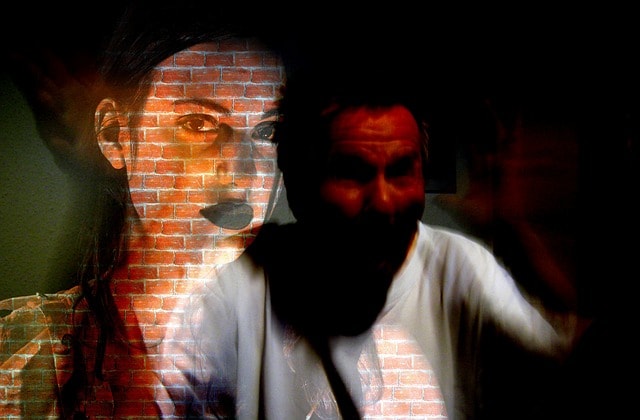Understanding Divorce With Domestic Abuse: A Guide for Young Teens

Introduction
Growing up, you might hear adults talk about complicated topics like divorce and domestic violence. These can be scary and confusing subjects. This guide will help you understand their meaning, why they happen, and how people stay safe.
Every family is different, and sometimes relationships don’t work out. When parents decide to separate, it can be an emotional time. But it’s important to know that divorce doesn’t mean anything is wrong with you, and there are people and resources to help families through difficult times. Divorce proceedings can be particularly complex when domestic violence is involved, affecting decisions about custody and property.
What is Domestic Violence?

Domestic violence happens when one person in a relationship tries to control or hurt another person physically, emotionally, or mentally. This can occur between married couples, partners, or family members. It’s never the victim’s fault, and there are ways to get help. Domestic violence laws vary by state and provide a legal framework to protect victims, including definitions of abusive acts and rights to seek protective measures like restraining orders.
Types of Domestic Violence
- Physical abuse: Hitting, pushing, or hurting someone’s body
- Emotional abuse: Saying mean things, making someone feel bad about themselves
- Financial abuse: Controlling someone’s money or preventing them from working
- Sexual abuse: Forcing someone to do things they don’t want to do
- Domestic violence restraining orders: Legal measures that victims can seek during a divorce to ensure their safety. These orders offer protections, including emergency orders, and require evidence to prove domestic violence claims.
How Domestic Violence Affects Divorce

Divorce can be a tough experience for any family, but when domestic violence is involved, it becomes even more complicated and emotionally draining. Domestic violence can significantly impact the divorce process, influencing decisions about child custody, spousal support, and the division of marital property. For instance, a family court judge may consider the history of domestic violence when deciding who gets custody of the children or how much financial support one spouse should provide to the other.
If a spouse has been abusive, the victim might feel scared or anxious about going through the divorce process. This fear can make negotiating a fair settlement or participating in court proceedings hard. That’s why it’s crucial to have a supportive and experienced domestic violence attorney by your side. They can guide you through the process, protect your rights, and help you feel more secure as you navigate this challenging time.
Legal Protections and Domestic Violence Restraining Orders
The law protects people experiencing domestic violence. This means:
- Victims can get restraining orders
- Abusers can be arrested and charged with crimes
- Courts can help keep victims safe
In cases of domestic violence, criminal law intersects with family law, making it crucial to have legal representation that understands both areas to effectively navigate the complexities that arise when a divorce involves criminal allegations.
Safety and Protection from an Abusive Spouse
If you are experiencing domestic violence, your safety and the safety of your children should be your top priority. Here are some steps you can take to protect yourself:
- Create a Safety Plan: Think about how you can leave your home quickly and safely in case of an emergency. Identify a safe place to go, like a friend’s or family member’s home, and make sure you have a way to get there.
- Get a Restraining Order: A restraining order can help protect you from your abusive spouse by legally prohibiting them from contacting or approaching you. You can obtain a restraining order through the civil court or as part of the divorce process.
- Seek Support: Reach out to friends, family, or a domestic violence support group for emotional support and guidance. You can also contact the National Domestic Violence Hotline at 1-800-799-SAFE (7233) for confidential support and resources.
- Document Incidents: Keep a record of any incidents of domestic violence, including dates, times, and details of what happened. This documentation can be very helpful in court proceedings.
Remember, you are not alone, and people and resources are available to help you stay safe.
Financial Support and Domestic Abuse
Domestic violence can take a serious toll on a victim’s financial stability, making it hard to support themselves and their children. In some cases, the court may consider the history of domestic violence when determining spousal support or child support.
If you are a victim of domestic violence, you might be eligible for financial support through various programs, such as:
- Temporary Assistance for Needy Families (TANF): This program provides financial assistance to low-income families, including those affected by domestic violence.
- Supplemental Security Income (SSI): This program offers financial assistance to individuals with disabilities, including those who have been disabled by domestic violence.
- Victim Compensation Programs: Some states have victim compensation programs that provide financial assistance to victims of domestic violence.
It’s essential to consult with a domestic violence attorney who can help you navigate the divorce process and ensure you receive the financial support you need to rebuild your life. They can guide you through the legal system and help you access the available resources.
Understanding your rights and the support available allows you to take steps towards a safer and more secure future.
Real Case Law Examples
Case 1: Protecting a Parent
In a California case, a mother successfully obtained a permanent restraining order against her abusive spouse. The court recognized her fear for her children’s safety and granted protection.
Case 2: Child Custody in Domestic Violence Situations
A Florida court modified child custody arrangements when evidence of domestic violence was presented. The judge prioritized the children’s safety and well-being.
Frequently Asked Questions
Q: What should I do if I think someone is being abused?
A: Tell a trusted adult like a teacher, school counselor, or family member. They can help get professional assistance.
Q: Is domestic violence only physical?
A: No. Emotional, verbal, and financial control are also forms of abuse.
Victims of domestic violence may opt for a no-fault divorce to avoid the need to prove misconduct, simplifying the legal process.
Q: Can teenagers experience dating violence?
A: Yes. Dating violence can happen in teenage relationships. It’s important to recognize warning signs and seek help.
Resources and Help
If you or someone you know needs help:
- National Domestic Violence Hotline: 1-800-799-SAFE (7233)
- School counselors
- Local law enforcement
- Child protective services
Closing Message
Remember, everyone deserves to feel safe, loved, and respected. Abuse is never the victim’s fault. There are always people and resources ready to help.
Related Terms: divorce, domestic violence, abused spouse’s ability, spousal abuse, abusive marriage













